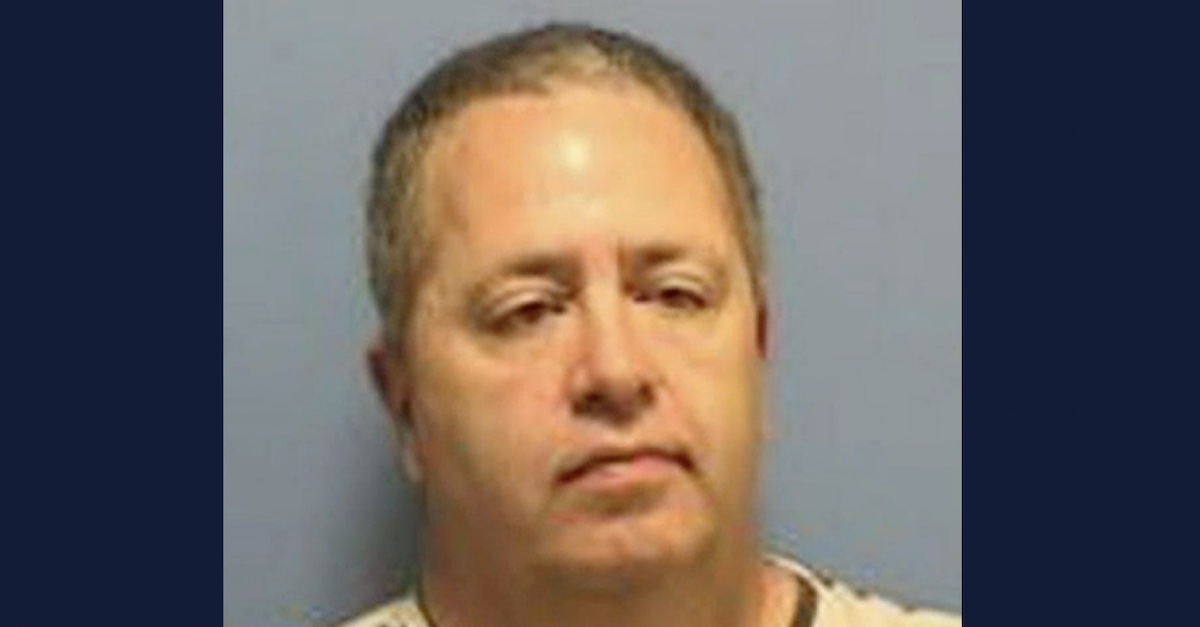After a federal judge rejected a negotiated sentence between the government and the defense, a 55-year-old former officer with the New Orleans Police Department was sentenced to twice as much prison time for sexually assaulting a teen girl he once brought to a hospital for a rape kit.
Rodney Vicknair was sentenced to serve 14 years in prison — twice as long a punishment as he and the Biden administration’s Civil Rights Division in DOJ had asked for — several months after he pleaded guilty to violating 18 U.S.C. § 242, which criminalizes the use of the badge to deprive a victim of constitutional rights.
According to the factual basis for the plea, as filed by the government in federal court and agreed to by the defense in November, then-cop Vicknair admittedly met the victim (V1) when she was 14 years old after she was raped. He brought the teen to a hospital for a rape kit and gave her his number — “and offered to be her friend and mentor,” documents said.
Vicknair attempted to get closer to the victim by communicating with her for months by phone and on Snapchat and, while in uniform, “often stopped by unannounced at V1’s residence. ”
“Over time, VICKNAIR made comments to V1 that were sexual in nature. VICKNAIR requested and received sexually explicit photographs of V1 and kept them on his cellphone,” documents said. “On one occasion he touched V1’s breast under her shirt, and on another occasion he touched V1’s buttocks over her clothes.”
After the victim turned 15, Vicknair on Sept. 23, 2020, traveled to her Louisiana home and “told her to come outside and get into his vehicle,” documents said. Once the victim was inside the vehicle, Vicknair locked the doors, wouldn’t let her leave, and “touched her genitals under her clothing.” The government maintained that the offense also “constituted kidnapping.”
According to the court documents, Vicknair lied to detectives at his former police department about why he visited the victim on the night of the sexual assault and when he said he didn’t commit the crime. He only acknowledged at the time of the interview that he said the child had a “nice body” and “nice ass.”
The kidnapping allegation meant that Vicknair potentially faced a life sentence, leading to a dispute between the defense and prosecution about what the level of offense should be. The government calculated the offense level and concluded that, given the kidnapping accusation, the sentencing guidelines for the level-43 offense called for life in prison. But the government nonetheless entered into a plea agreement with the defendant — in a favor of a 7-year sentence — under Rule 11(c)(1)(C) of the Federal Rules of Criminal Procedure.
“The United States understands the importance of calculating the Sentencing Guidelines correctly, and therefore respectfully asks the Court to adopt the foregoing calculations,” the government said in a sentencing memo. “Nonetheless, for all of the reasons it set forth in its Sentencing Memorandum, the United States asks the Court to impose the sentence agreed to by the parties.”
U.S. District Judge Lance Africk, a George W. Bush appointee, was not having the “C” plea and rejected it on March 8, the docket showed:
Minute Entry for proceedings held before Judge Lance M Africk: Sentencing as to Rodney Vicknair held on 3/8/2023. ORDERED that the plea agreement, pursuant to Federal Rule of Criminal Procedure 11(c)(1)(C) is REJECTED for reasons stated on the record. FURTHER ORDERED that this matter is continued to 3/14/2023 at 8:30 a.m. so the defendant may advise the Court how he wishes to proceed. FURTHER ORDERED that the defendant’s conditions of release be modified as stated herein. (Court Reporter Toni Tusa.) (blg) (Entered: 03/08/2023)
Such so-called “C” pleas are rare, as Law&Crime pointed out in the context of the Derek Chauvin case, and judges are often loath to accept them. The reason? If judges accept “C” pleas — i.e., the negotiated sentence between the parties — their hands are tied at sentencing.
But it was still within the court’s discretion to reject the deal, as the government explained in the plea agreement:
The defendant understands that the statutory maximum term for the crime to which he is pleading guilty is up to life in prison. However, the Govemment and the defendant have agreed, pursuant to Federal Rule of Criminal Procedure 1 1(c)(1)(C), that should the Court accept the defendant’s plea of guilty to the Information, a sentence of 7 years (84 months) imprisonment is appropriate.
The defendant understands that the Court may accept or reject the Rule 11(c)(1)(C) agreement, or may defer its decision as to the acceptance or rejection until there has been an opportunity to consider the pre-sentence report as provided for in F.R.Cr.P. 11(cX3)(A). The parties fuither agree that should the Court not abide by this agreement, the defendant or the Govemment has the option of declaring this plea agreement null and void.
The judge, indeed, blew up the deal and scheduled a hearing for the morning of March 14 — today.
The end result of that hearing, according to the Department of Justice, was a 14-year sentence (as of Tuesday afternoon, the docket activity had not been updated to reflect that sentencing).
Vicknair was fired from the New Orleans Police Department following allegations of rape. The victim’s mother filed a lawsuit in February 2021 alleging that Vicknair showed the victim pictures of a girl he claimed was his 16-year-old daughter. The other girl was wearing bikinis, lingerie and held a cloth over herself, the suit said. The former officer was also accused of asserting that his daughter was a model.
When he was arrested, Vicknair had the victim’s underwear in his possession, the lawsuit further alleged.
The DOJ’s press release made no mention of the rejected “C” plea, though it is clear from the original agreement’s signature block that the Civil Rights Division’s Assistant Attorney General Kristen Clarke backed it.

“We are grateful to this young survivor for coming forward, even though she thought no one would believe her,” Clarke said in a statement, according to DOJ press release. “Had she not been willing to do so, we would not have been able to hold the defendant accountable for his heinous crime. This case should send a strong message to law enforcement officers who sexually abuse victims, particularly children, that they are not above the law and will be held accountable.”

